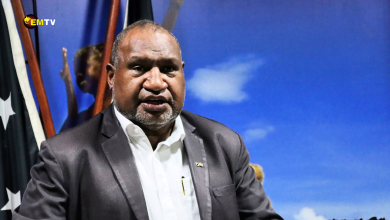A recent report stated that one out of two children in Papua New Guinea suffers from chronic malnutrition resulting in stunted growth – In the bigger picture, that’s about half the children population of PNG.
The two-day workshop on National Nutrition Action Plan, hosted by UNICEF, will highlight details on how PNG should reverse the plight of malnutrition which affects nearly half the children under 5 years in PNG.
Present at the event among other dignitaries was the Secretary for Department of National Planning and Monitoring, Hakaua Harry, who officially opened the workshop with the question: Why should we focus on ending malnutrition in all its forms?
“This is a crisis and something we need to take seriously in all aspects of our planning for development of this country. While we talk about investing in certain sectors that will bring the highest economic returns in our investment, malnutrition is and will be a threat to our pathway to sustainable growth.”
Issues of malnutrition brings about poorer health indicators for PNG, which leads on to other inter-related socio-economic indicators. If a child is malnourished from conception to the age of 2, they will have problems with brain development, affecting their learning abilities including physical impairments that are permanent and irreversible.
“These impairments limit a child’s education and employment prospects. Reduced individual earnings translate into reduced economic productivity at the national level. This is how malnutrition can trap children in an intergenerational cycle of poverty.” Stated Majella Hurney, the Head of Policy and Advocacy – Save the Children, Australia.
While PNG had failed to meet its target with malnutrition under the Millennium Development Goals (MDGs), the Planning Secretary says that an elevated status will be given to address nutrition in terms of national priorities.
“My Department is committed to ensure that adequate funding is allocated to this priority amongst all other health programs…We must all work together in a well-coordinated manner, holistic manner so that we can construct our nutrition plan, our own sector plans, our medium term development plans…and to ensure that we impact the activities that contribute to improving the status of malnutrition in this country,” stated the Planning Secretary.






